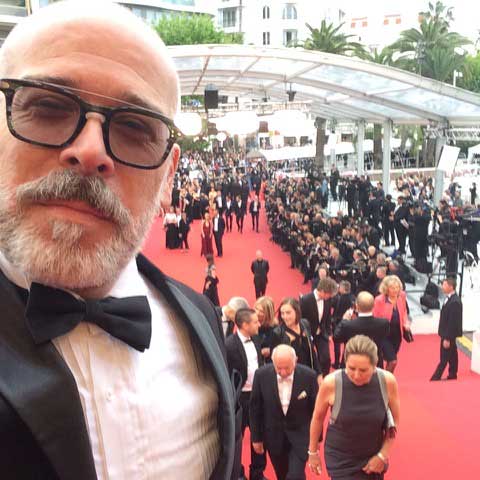
THE MILL VALLEY Film Festival may just be the most easy-going film festival on the planet. The tranquil beauty of Marin certainly has a lot to do with it, as do the respectful, socially conscious audiences that fill the theaters each year.
But the true secret to MVFF’s laid- back vibe is all the work done behind the scenes by the tireless festival staff. From the full-time employees in the California Film Institute offices on Lootens Place in San Rafael to the theater projectionists and employees to the festival consultants and volunteers, it’s hundreds of people devoting time and energy that makes the festival run as smoothly as it does.
What most festivalgoers may not know is that it takes an entire year to make the 10-day event happen. Each year, immediately after it’s over, the staff gathers for a wrap meeting, where they discuss what worked and didn’t work, mull over analyses and numbers, and begin work on improvements for the following year.
“You’re exhausted at that point,” says MVFF executive director Mark Fishkin of the post-festival meetings. “I can’t tell you how many people have said to me, ‘Is that a full-time job?’ People really don’t understand every element that goes into putting on the festival. It takes a village to do this. We’re very fortunate to have the very best people.”
When you break down the festival by the numbers, it becomes evident how monstrous an endeavor it truly is to organize such a sprawling, multifaceted operation. Last year’s festival presented 108 feature films and 96 short films, for a grand total of 204 titles. In preparation for the event, each film is viewed by at least two members of the programming team. If we assume the average run time for full-length features is about two hours and the average run time for shorts is about 10 minutes, that amounts to 27,840 hours of viewing, minimum, spread across the programming department.
And that’s before taking into account the films that are viewed by more than two programmers and the films that are considered for the festival but ultimately aren’t featured. It’s a mind-boggling work- load, to say the least, and it’s all headed up by director of programming Zoë Elton.
“One of the things I notice about people who work with us is that they’re unusual people,” Elton says. “What (our staff members) manage to pull off in a short period of time with such incredible focus … these are not ordinary people. They’re extraordinary. They’re quite eccentric sometimes as well, but they are extraordinary. They have an incredible passion for what they do.”
There are two major additions to the MVFF programming team this year: Mimi Brody, who is now overseeing the U.S. indie program, and João Federici, heading up
the world cinema team. Both have extensive backgrounds in the industry, Brody having served as programmer at the likes of the Tribeca Film Festival and the San Francisco International Film Festival and Federici as executive and artistic director at MixBrasil, a visionary LGBTQ film festival that helped change the cultural conversation in Latin America for the better.
Along with the rest of the festival’s programmers, Brody and Federici have been putting in screening time in advance, though watching films only scratches the surface of the programmers’ responsibilities. At the Cannes Film Festival back in May, Federici, Elton and Fishkin were scoping out films for programming consideration and came across one title (to remain unnamed for now) that they fell head over heels for.
“João started working on (securing the film) as soon as we got back home,” Elton recalls. “The film’s representatives have still not confirmed whether we can have
it or not. Take a film like that, that we all 100 percent wanted to show at the festival … and now we’re two months into negotiations for one film that we love so much that we think that it’s worth the time. And they may never say yes.”
Negotiations like this are a huge part of an MVFF programmer’s job, and there are dozens of deals being struck in the lead-up to the festival. But the programmers aren’t the only ones working. There’s also the festival operations team, the marketing and publicity team, theater operations, events planning, transportation, security, volunteers, and the list goes on.
“When you go to Cannes, you see all of these workers laying out the red carpet,” Fishkin says. “We’re essentially laying out these red carpets all year round for this event, and it just takes so many different people and so many different steps to do it. You really have to love this job.”
MVFF is a labor of love, but you’d never know about the labor part as a festival attendee. Despite all the backstage scrambling, the long hours and the close calls that happen in advance, the event itself always feels effortless, breezy and full of life and laughter, and Elton gives great credit to the MVFF staff.
This article originally appeared in Marin Magazine’s print edition under the headline: “Making It Happen”.


